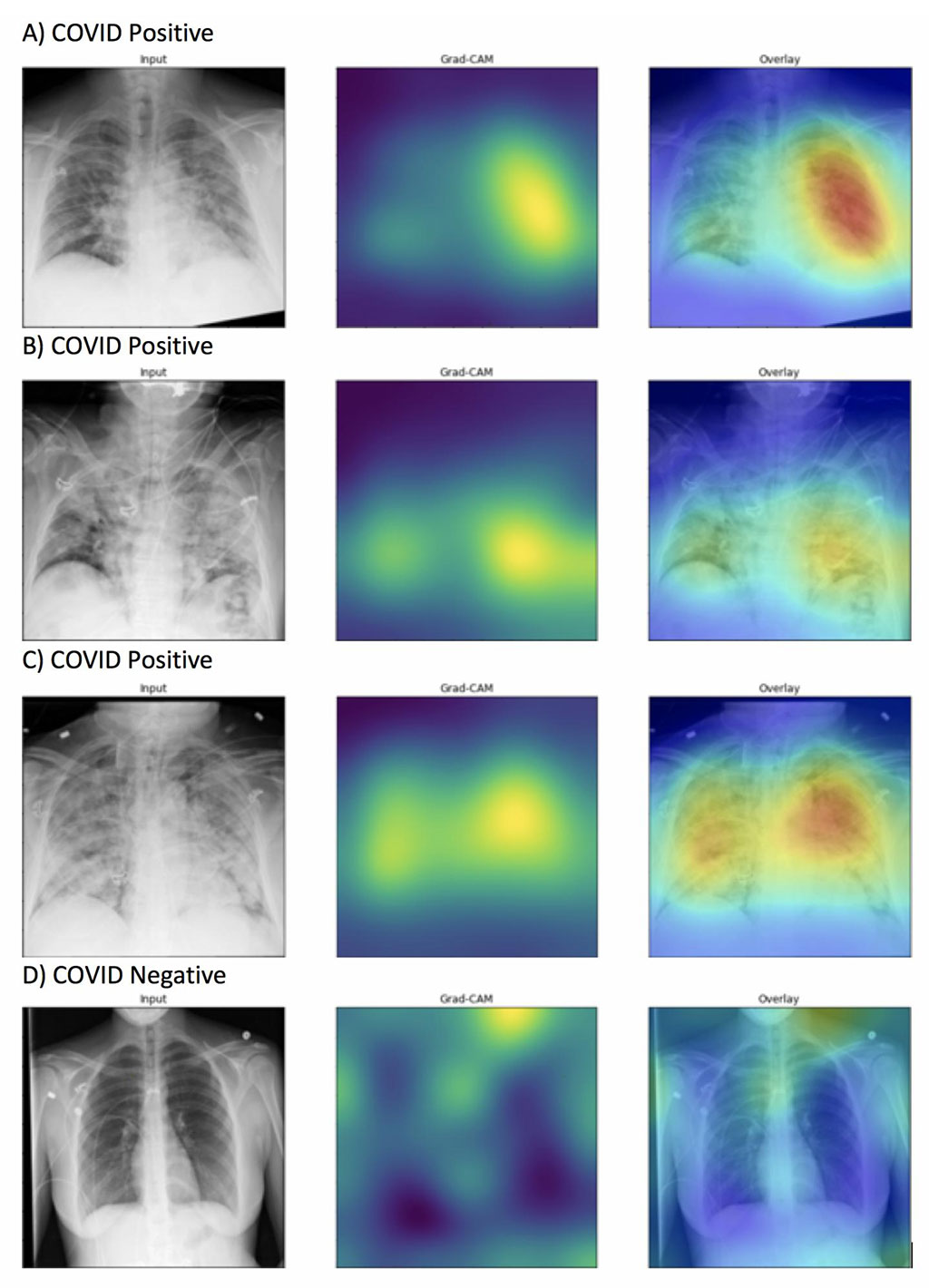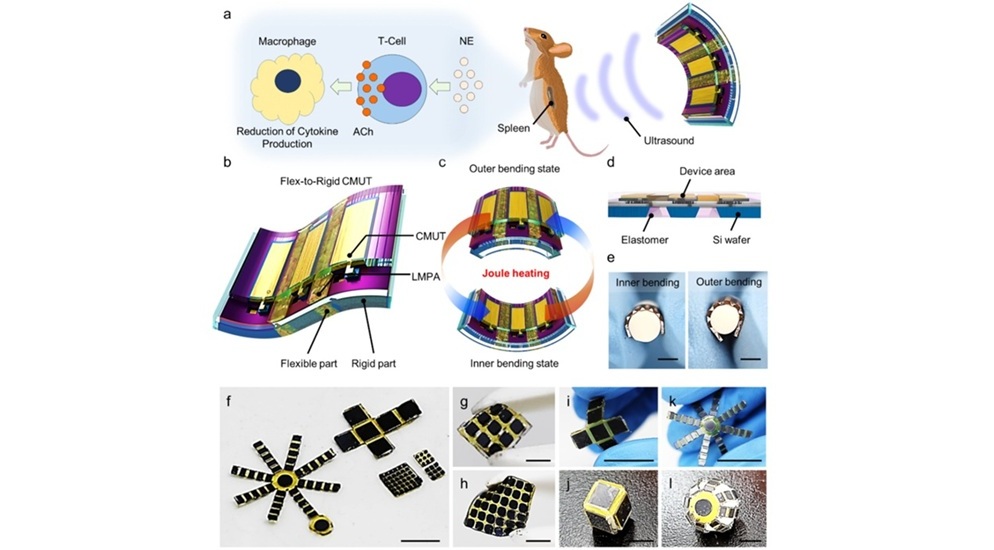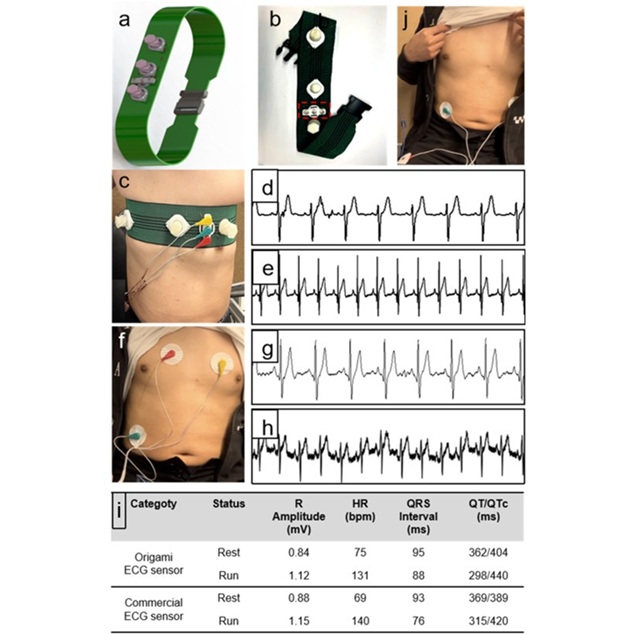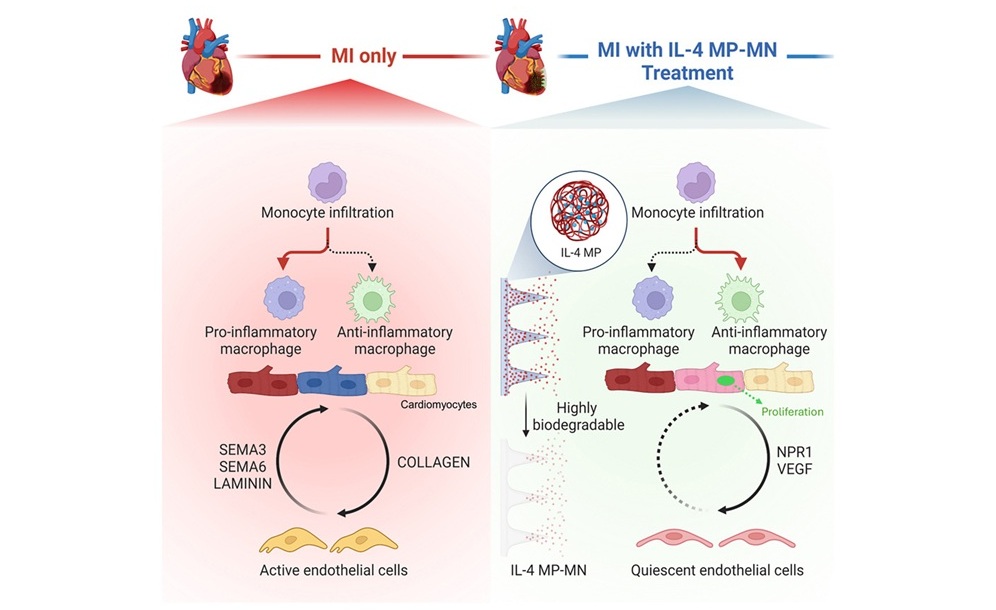New AI Platform Detects COVID-19 on Chest X-Rays with Accuracy and Speed
|
By HospiMedica International staff writers Posted on 25 Nov 2020 |

Image: Generated heatmaps appropriately highlighted abnormalities in the lung fields in those images accurately labeled as COVID-19 positive (A-C) in contrast to images which were accurately labeled as negative for COVID-19 (D). Intensity of colors on the heatmap correspond to features of the image that are important for prediction of COVID-19 positivity (Photo courtesy of Northwestern University)
A new artificial intelligence (AI) platform that detects COVID-19 by analyzing X-ray images of the lungs is about 10 times faster as well as 1-6% more accurate than individual specialized radiologists.
Called DeepCOVID-XR, the machine-learning algorithm developed by researchers at the Northwestern University (Evanston, IL, USA) outperformed a team of specialized thoracic radiologists - spotting COVID-19 in X-rays about 10 times faster and 1-6% more accurately. The researchers believe physicians could use the AI system to rapidly screen patients who are admitted into hospitals for reasons other than COVID-19. Faster, earlier detection of the highly contagious virus could potentially protect health care workers and other patients by triggering the positive patient to isolate sooner. The researchers also believe the algorithm could potentially flag patients for isolation and testing who are not otherwise under investigation for COVID-19.
To develop, train and test the new algorithm, the researchers used 17,002 chest X-ray images - the largest published clinical dataset of chest X-rays from the COVID-19 era used to train an AI system. The team then tested DeepCOVID-XR against five experienced cardiothoracic fellowship-trained radiologists on 300 random test images. Each radiologist took approximately two-and-a-half to three-and-a-half hours to examine this set of images, whereas the AI system took about 18 minutes. The radiologists' accuracy ranged from 76-81%. DeepCOVID-XR performed slightly better at 82% accuracy. The researchers have made the algorithm publicly available with hopes that others can continue to train it with new data. Right now, DeepCOVID-XR is still in the research phase, but could potentially be used in the clinical setting in the future.
"We are not aiming to replace actual testing," said Northwestern's Aggelos Katsaggelos, an AI expert and senior author of the study. "X-rays are routine, safe and inexpensive. It would take seconds for our system to screen a patient and determine if that patient needs to be isolated."
"It could take hours or days to receive results from a COVID-19 test," said Dr. Ramsey Wehbe, a cardiologist and postdoctoral fellow in AI at the Northwestern Medicine Bluhm Cardiovascular Institute. "AI doesn't confirm whether or not someone has the virus. But if we can flag a patient with this algorithm, we could speed up triage before the test results come back."
Related Links:
Northwestern University
Called DeepCOVID-XR, the machine-learning algorithm developed by researchers at the Northwestern University (Evanston, IL, USA) outperformed a team of specialized thoracic radiologists - spotting COVID-19 in X-rays about 10 times faster and 1-6% more accurately. The researchers believe physicians could use the AI system to rapidly screen patients who are admitted into hospitals for reasons other than COVID-19. Faster, earlier detection of the highly contagious virus could potentially protect health care workers and other patients by triggering the positive patient to isolate sooner. The researchers also believe the algorithm could potentially flag patients for isolation and testing who are not otherwise under investigation for COVID-19.
To develop, train and test the new algorithm, the researchers used 17,002 chest X-ray images - the largest published clinical dataset of chest X-rays from the COVID-19 era used to train an AI system. The team then tested DeepCOVID-XR against five experienced cardiothoracic fellowship-trained radiologists on 300 random test images. Each radiologist took approximately two-and-a-half to three-and-a-half hours to examine this set of images, whereas the AI system took about 18 minutes. The radiologists' accuracy ranged from 76-81%. DeepCOVID-XR performed slightly better at 82% accuracy. The researchers have made the algorithm publicly available with hopes that others can continue to train it with new data. Right now, DeepCOVID-XR is still in the research phase, but could potentially be used in the clinical setting in the future.
"We are not aiming to replace actual testing," said Northwestern's Aggelos Katsaggelos, an AI expert and senior author of the study. "X-rays are routine, safe and inexpensive. It would take seconds for our system to screen a patient and determine if that patient needs to be isolated."
"It could take hours or days to receive results from a COVID-19 test," said Dr. Ramsey Wehbe, a cardiologist and postdoctoral fellow in AI at the Northwestern Medicine Bluhm Cardiovascular Institute. "AI doesn't confirm whether or not someone has the virus. But if we can flag a patient with this algorithm, we could speed up triage before the test results come back."
Related Links:
Northwestern University
Latest COVID-19 News
- Low-Cost System Detects SARS-CoV-2 Virus in Hospital Air Using High-Tech Bubbles
- World's First Inhalable COVID-19 Vaccine Approved in China
- COVID-19 Vaccine Patch Fights SARS-CoV-2 Variants Better than Needles
- Blood Viscosity Testing Can Predict Risk of Death in Hospitalized COVID-19 Patients
- ‘Covid Computer’ Uses AI to Detect COVID-19 from Chest CT Scans
- MRI Lung-Imaging Technique Shows Cause of Long-COVID Symptoms
- Chest CT Scans of COVID-19 Patients Could Help Distinguish Between SARS-CoV-2 Variants
- Specialized MRI Detects Lung Abnormalities in Non-Hospitalized Long COVID Patients
- AI Algorithm Identifies Hospitalized Patients at Highest Risk of Dying From COVID-19
- Sweat Sensor Detects Key Biomarkers That Provide Early Warning of COVID-19 and Flu
- Study Assesses Impact of COVID-19 on Ventilation/Perfusion Scintigraphy
- CT Imaging Study Finds Vaccination Reduces Risk of COVID-19 Associated Pulmonary Embolism
- Third Day in Hospital a ‘Tipping Point’ in Severity of COVID-19 Pneumonia
- Longer Interval Between COVID-19 Vaccines Generates Up to Nine Times as Many Antibodies
- AI Model for Monitoring COVID-19 Predicts Mortality Within First 30 Days of Admission
- AI Predicts COVID Prognosis at Near-Expert Level Based Off CT Scans
Channels
Critical Care
view channel
Nanogel Technology Almost 100% Effective in Destroying Drug-Resistant Bacteria Within Hours
Antibiotic resistance is one of the most serious global health threats, driven by bacteria that evade treatment and form protective biofilms that shield them from drugs. Pathogens such as Pseudomonas aeruginosa,... Read more
Wearable Ultrasound Sensor Delivers Noninvasive Treatment Without Surgery
Wearable ultrasound devices have long struggled with low acoustic power and poor structural stability, limiting their use in high-resolution imaging and therapeutic applications. Conventional flexible... Read moreSurgical Techniques
view channelNovel Endoscopy Technique Provides Access to Deep Lung Tumors
Detecting lung cancer early can save lives, but diagnosing small tumors deep in the outer regions of the lungs remains a major clinical challenge. Although CT scans frequently identify tiny suspicious... Read more
New Study Findings Could Halve Number of Stent Procedures
When a coronary artery becomes acutely blocked during a heart attack, opening it immediately is essential to prevent irreversible damage. However, many patients also have other narrowed vessels that appear... Read morePatient Care
view channel
Revolutionary Automatic IV-Line Flushing Device to Enhance Infusion Care
More than 80% of in-hospital patients receive intravenous (IV) therapy. Every dose of IV medicine delivered in a small volume (<250 mL) infusion bag should be followed by subsequent flushing to ensure... Read more
VR Training Tool Combats Contamination of Portable Medical Equipment
Healthcare-associated infections (HAIs) impact one in every 31 patients, cause nearly 100,000 deaths each year, and cost USD 28.4 billion in direct medical expenses. Notably, up to 75% of these infections... Read more
Portable Biosensor Platform to Reduce Hospital-Acquired Infections
Approximately 4 million patients in the European Union acquire healthcare-associated infections (HAIs) or nosocomial infections each year, with around 37,000 deaths directly resulting from these infections,... Read moreFirst-Of-Its-Kind Portable Germicidal Light Technology Disinfects High-Touch Clinical Surfaces in Seconds
Reducing healthcare-acquired infections (HAIs) remains a pressing issue within global healthcare systems. In the United States alone, 1.7 million patients contract HAIs annually, leading to approximately... Read moreHealth IT
view channel
EMR-Based Tool Predicts Graft Failure After Kidney Transplant
Kidney transplantation offers patients with end-stage kidney disease longer survival and better quality of life than dialysis, yet graft failure remains a major challenge. Although a successful transplant... Read more
Printable Molecule-Selective Nanoparticles Enable Mass Production of Wearable Biosensors
The future of medicine is likely to focus on the personalization of healthcare—understanding exactly what an individual requires and delivering the appropriate combination of nutrients, metabolites, and... Read moreBusiness
view channel
Philips and Masimo Partner to Advance Patient Monitoring Measurement Technologies
Royal Philips (Amsterdam, Netherlands) and Masimo (Irvine, California, USA) have renewed their multi-year strategic collaboration, combining Philips’ expertise in patient monitoring with Masimo’s noninvasive... Read more
B. Braun Acquires Digital Microsurgery Company True Digital Surgery
The high-end microsurgery market in neurosurgery, spine, and ENT is undergoing a significant transformation. Traditional analog microscopes are giving way to digital exoscopes, which provide improved visualization,... Read more
CMEF 2025 to Promote Holistic and High-Quality Development of Medical and Health Industry
The 92nd China International Medical Equipment Fair (CMEF 2025) Autumn Exhibition is scheduled to be held from September 26 to 29 at the China Import and Export Fair Complex (Canton Fair Complex) in Guangzhou.... Read more


















